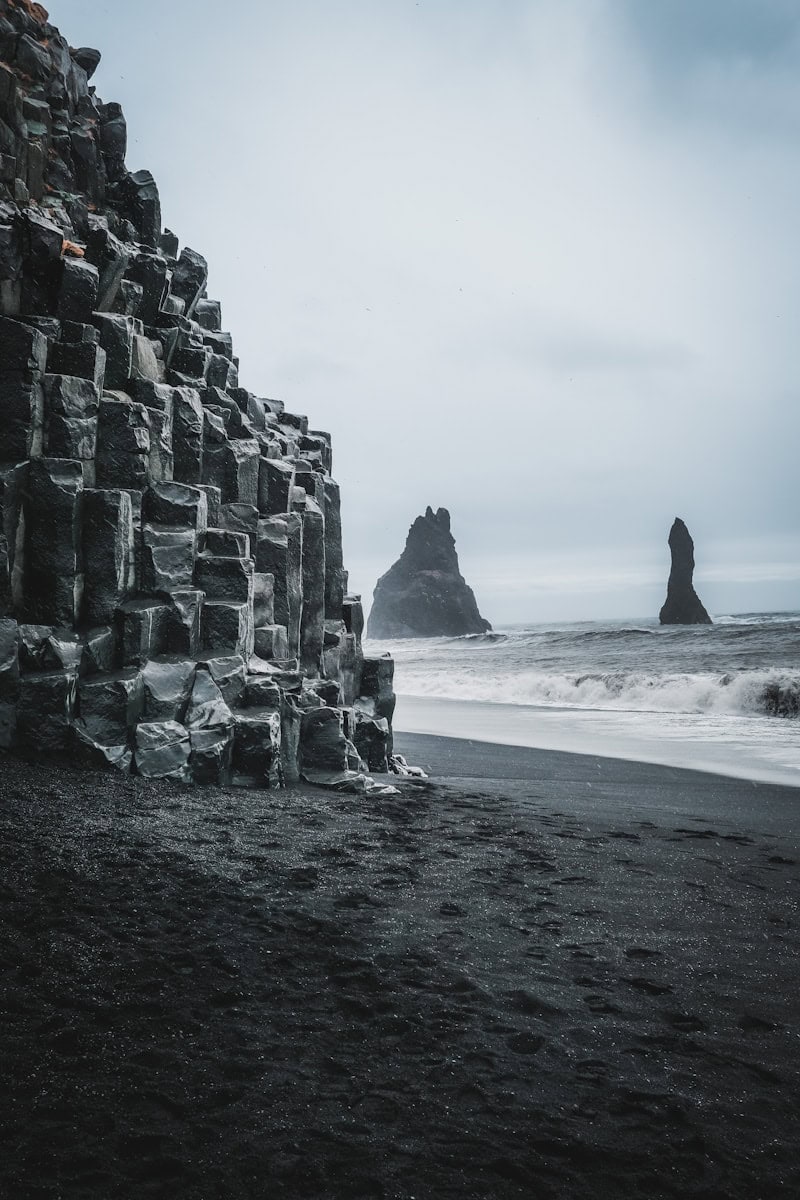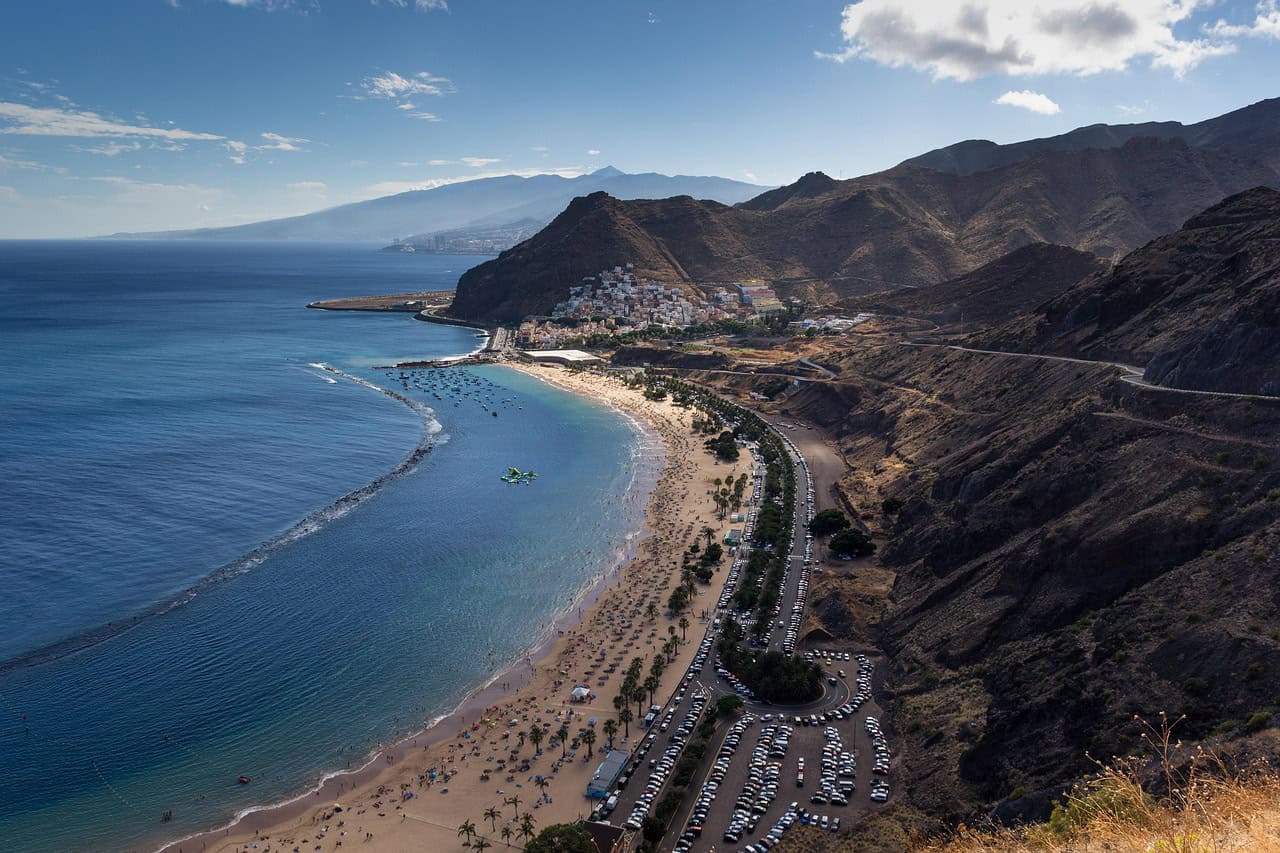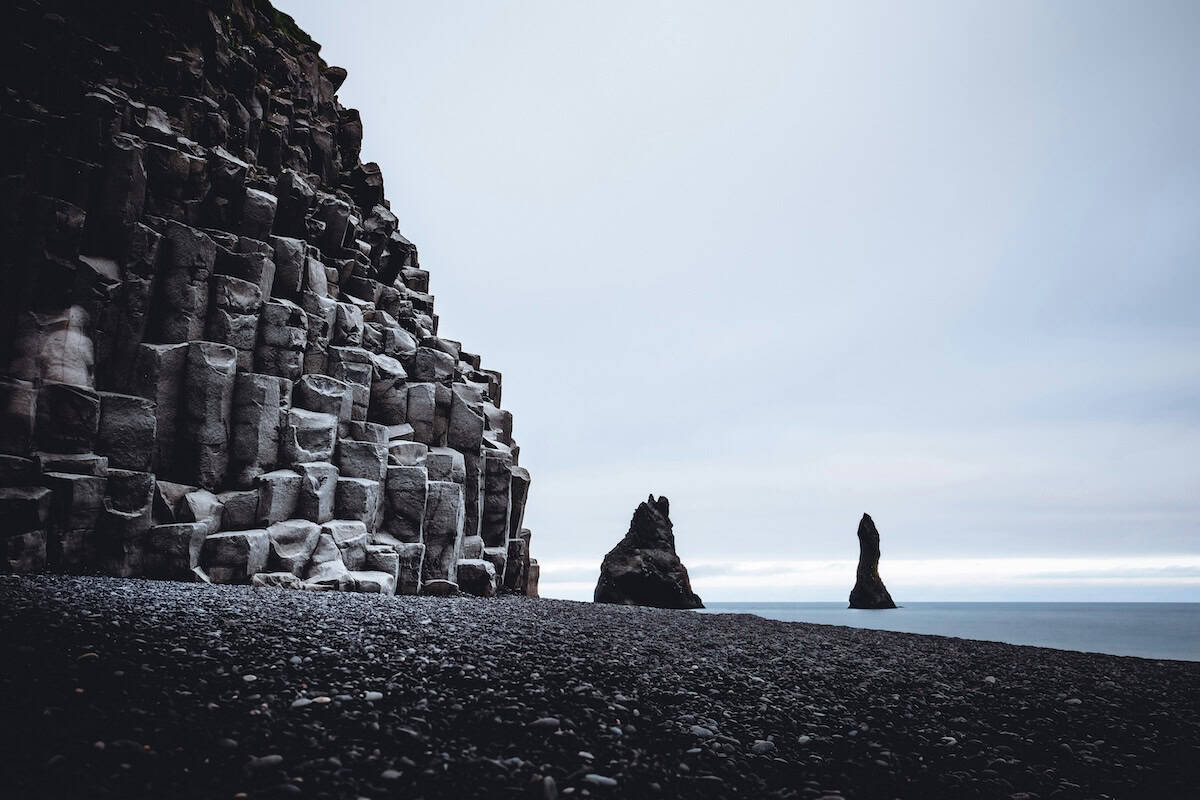
8 Best Black Sand Beaches for Stargazing: Astronomy Destinations in Spain, Greece, Hawaii and Beyond
By: Heather Keys
Skip to Section
You’re lying on soft black sand that’s still warm from the day, and you’re listening to waves crash in the darkness while the Milky Way stretches forever overhead.
It sounds like a dream, right?
Well, make that stargazing dream a reality at these nine gorgeous black sand beaches! These amazing destinations not only reflect less light than their brighter counterparts, but some are also further afield from urban areas and city lights, giving you clearer views of the night sky.
Let’s go!
Reynisfjara Beach, Iceland
Iceland’s most famous black sand beach delivers both drama and darkness for stargazing. The basalt columns and sea stacks create a moonscape setting, while Iceland’s northern latitude means long winter nights perfect for aurora hunting.
The beach faces south toward the open Atlantic, giving you an unobstructed view of southern constellations rarely visible from other northern locations. Winter visitors might catch both the Northern Lights and clear star views on the same night.
- Tip: Be careful! This beach is known for rogue waves that can be incredibly dangerous if you get too close to the water’s edge.
Kamari Beach, Santorini, Greece
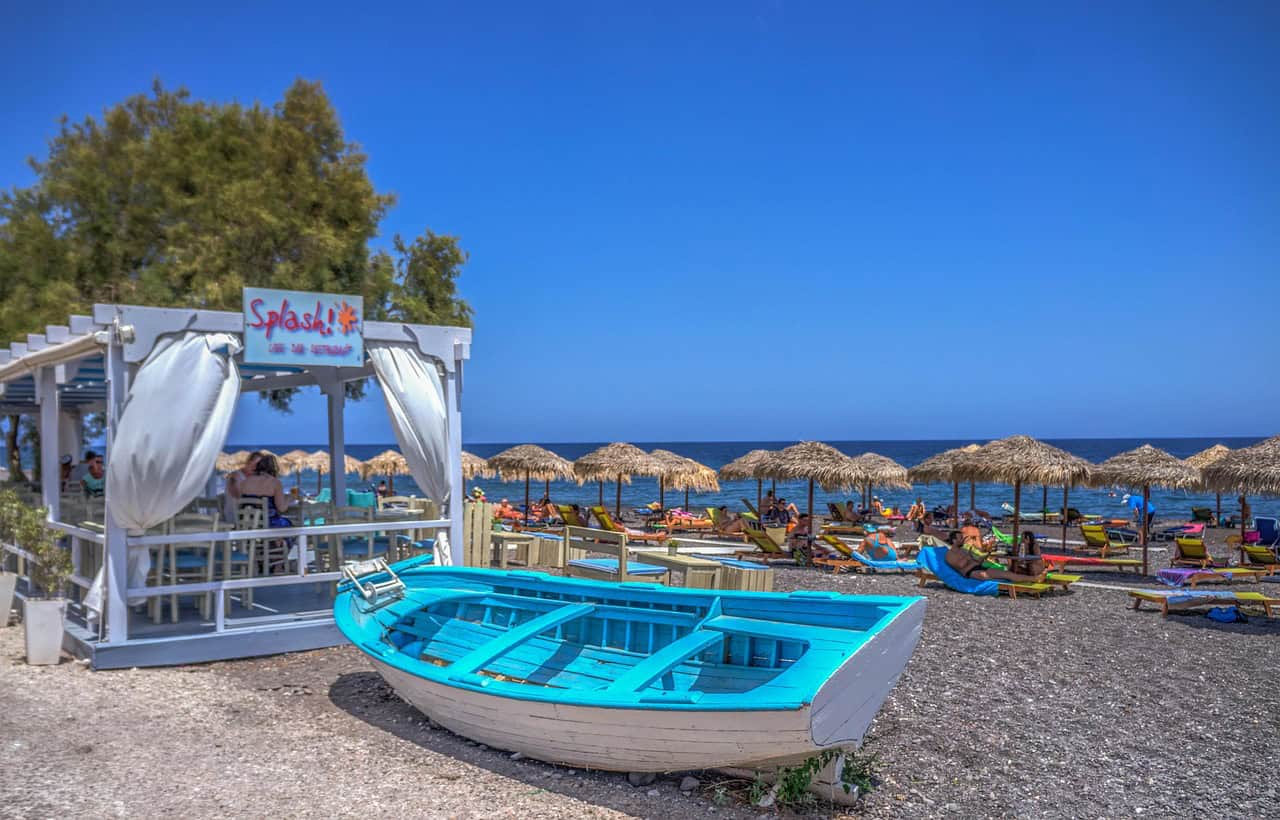
Photo by Michelle_Pitzel on Pixabay
Santorini’s black pebble beaches were born from ancient volcanic eruptions, and Kamari offers some of the best stargazing on the island. The beach stretches for miles with minimal light pollution once you walk away from the main resort area.
Summer nights here are warm enough for comfortable beach stargazing, and the dry climate means fewer cloudy nights interfering with your view. The dark sand absorbs heat during the day and releases it slowly, keeping you warm as temperatures drop.
- Tip: Bring good walking shoes! Those pebbles can be a pain (literally) to walk on.
Playa Jardín, Tenerife, Spain
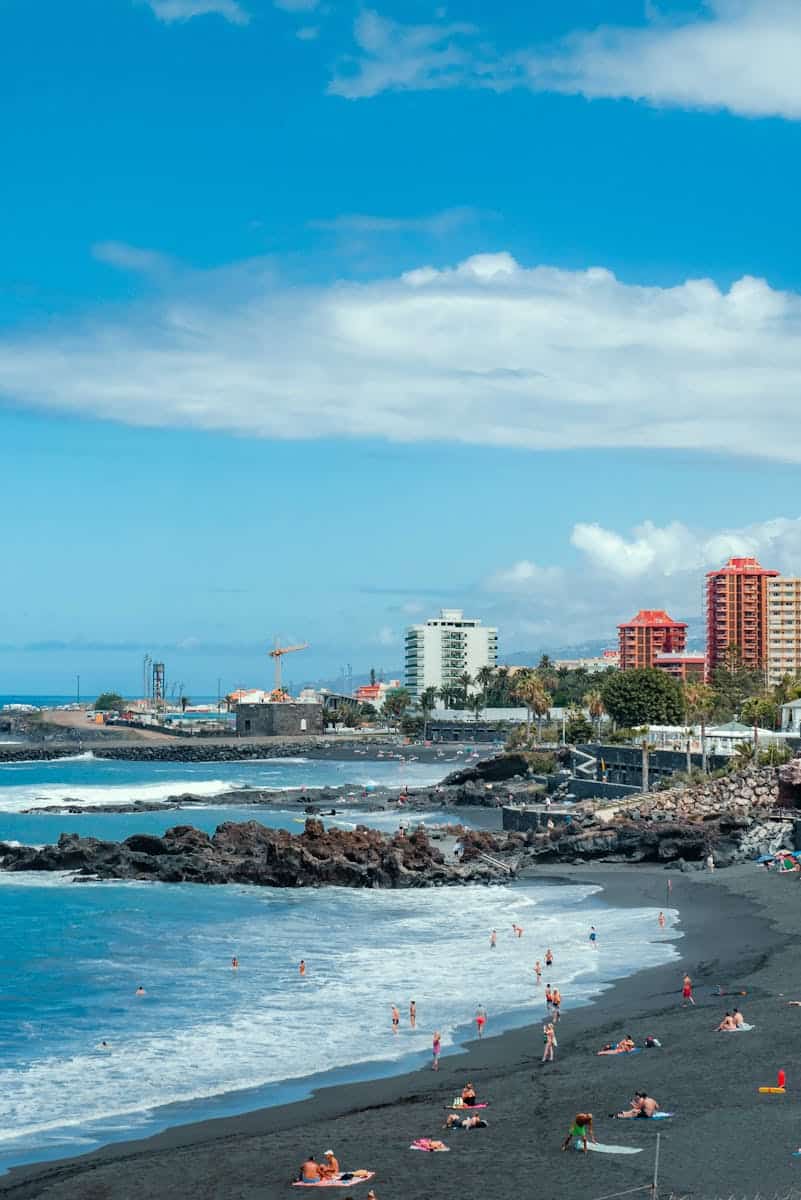
Photo by Atlantic Ambience on Pexels
Created with imported volcanic sand from other Canary Islands, Playa Jardín (and surrounding areas) gives you tropical stargazing with a twist. Tenerife’s position off the African coast means excellent atmospheric conditions for astronomy, which is why the island hosts a major observatory.
The beach curves in a protected bay, which helps to block light pollution from nearby towns. The palm trees here act as natural windbreaks, and the consistently mild temperatures make year-round stargazing a comfortable experience.
Pololu Valley Beach, Hawaii
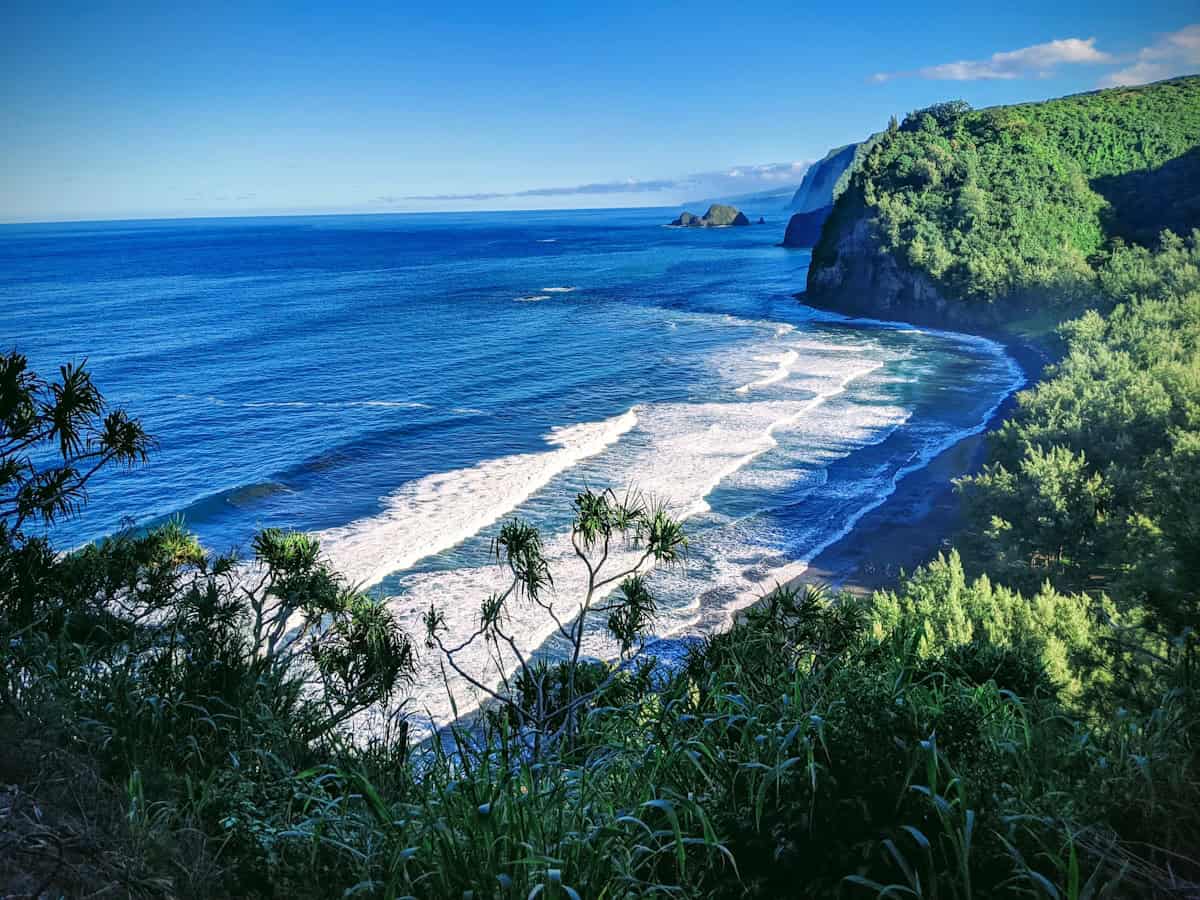
Photo by Jonathan Saleh on Unsplash
This secluded black sand beach on Hawaii’s Big Island requires a short hike down a steep trail, but that effort pays off with some of the darkest skies in the Hawaiian islands! The valley’s high cliffs help to block artificial lights from nearby communities.
Hawaii’s position in the middle of the Pacific Ocean makes for incredibly clear atmospheric conditions. You’ll see stars here that are invisible from most mainland locations, plus the chance to spot the Southern Cross low on the southern horizon.
Punaluu Beach, Hawaii
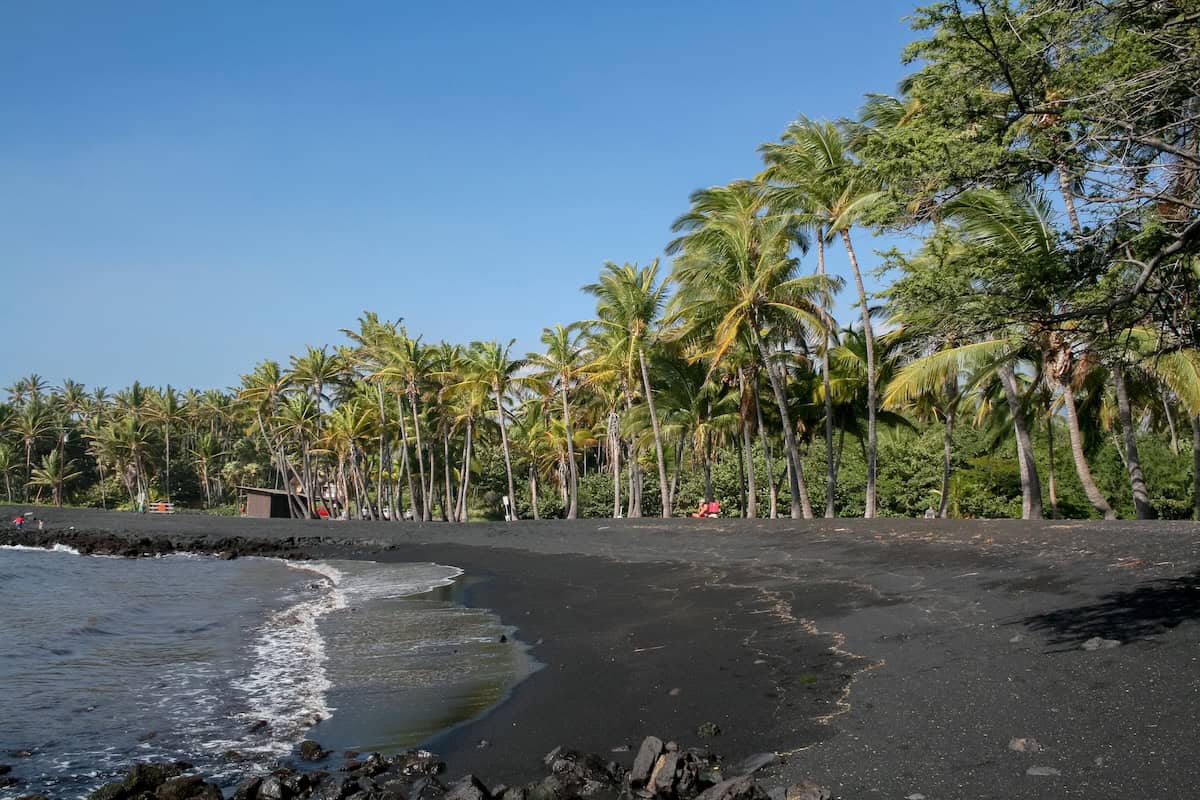
Photo by Diego Delso on Wikimedia Commons
Another Big Island gem, Punaluu Beach offers the rare combination of black sand, sea turtles, and excellent stargazing. The beach sits away from major population centers, and the surrounding coconut palms create natural viewing areas.
The constant trade winds keep the air clear of humidity and haze that can interfere with astronomical viewing. Local astronomy groups host stargazing events here, bringing telescopes to showcase incredible sights like Saturn’s rings and Jupiter’s moons.
Perissa Beach, Santorini, Greece
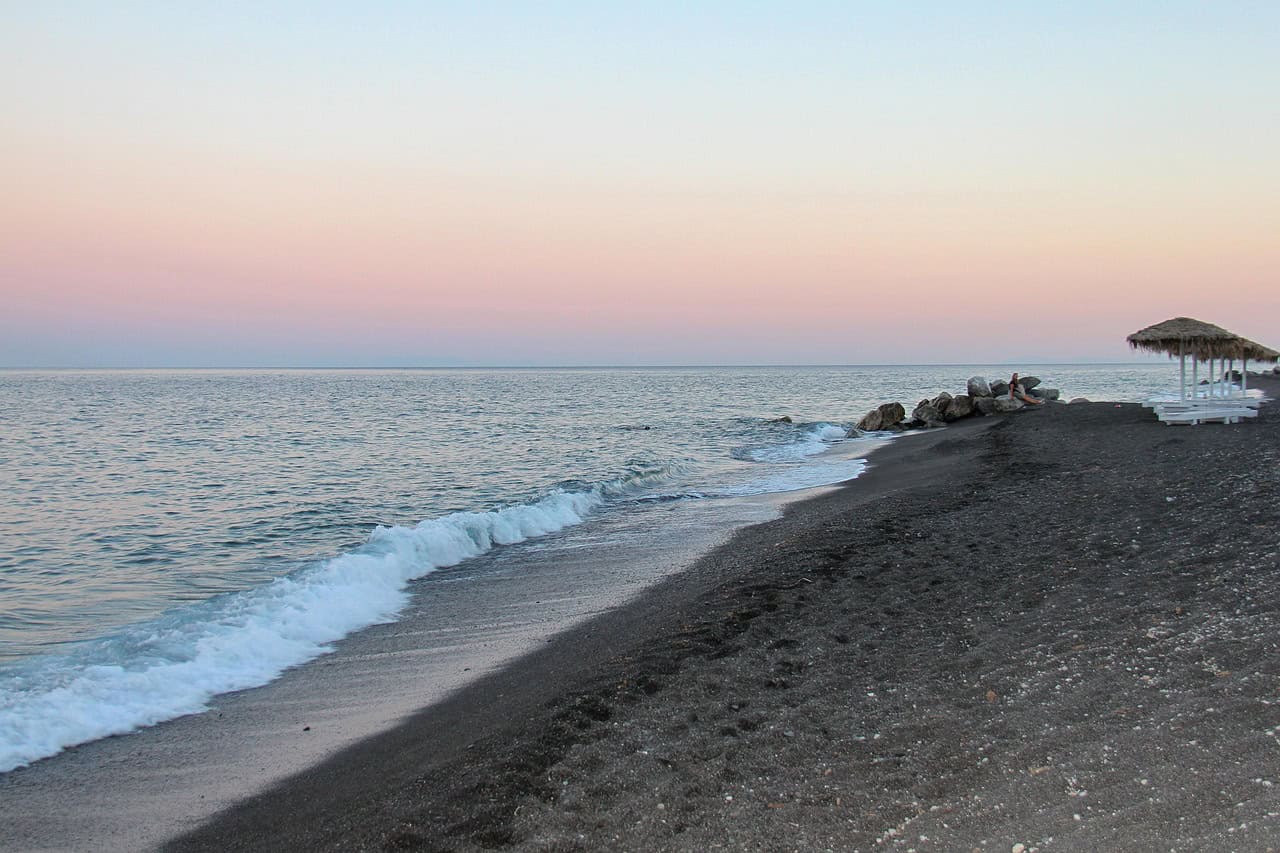
Photo by Pat_Photographies on Pixabay
Santorini’s longest black sand beach extends for several miles, giving you plenty of space to find a dark spot away from beachfront restaurants and hotels. The eastern location means you can watch stars rise over the Aegean Sea.
Ancient volcanic activity created the distinctive black sand, and the same geological forces shaped the island’s unique topography. The beach faces away from Santorini’s main towns, significantly reducing light pollution.
Playa de la Arena, Tenerife, Spain
This black sand beach on Tenerife’s west coast is perfect for a sunset cocktail followed by exceptional stargazing. The Canary Islands’ subtropical location provides stable atmospheric conditions and minimal weather interference.
Local regulations limit beachfront development, keeping artificial lighting to a minimum. The beach’s orientation gives you views of both northern and southern sky objects as the night progresses.
Playa de los Cancajos, La Palma, Spain
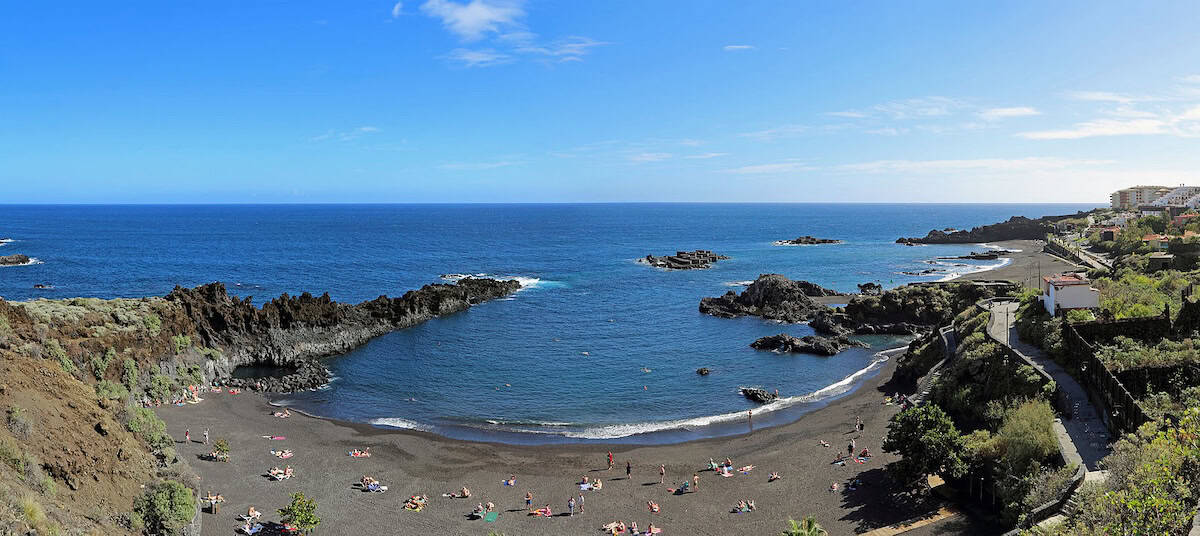
Photo by Marc Ryckaert on Wikimedia Commons
La Palma, known as La Isla Bonita, is home to one of the world’s most important astronomical observatories. This black volcanic sand beach gives you access to the same dark skies that attract professional astronomers from around the globe.
The beach sits on the island’s eastern shore, away from the main population centers. La Palma’s strict lighting ordinances protect the observatories, which means better stargazing for beachgoers as well.
Your Dark Sky Adventure Awaits!
Black sand beaches offer a unique stargazing experience you can’t get anywhere else. The combination of volcanic landscapes, remote locations, and heat-retaining sand creates perfect conditions for late-night astronomical adventures. Whether you’re tracking satellites, spotting planets, or just lying back to watch meteor showers, these dark sand destinations put you front row for nature’s greatest light show. Pack a blanket, download a stargazing app, and prepare for nights you’ll remember long after your tan fades.
About the Author
Originally from Indiana, Heather believes every destination has a story worth telling and a reason to visit. With a deep love of adventure, history, and psychology, she shares travel trivia, tips, and inspiration to encourage you to explore the world with curiosity and optimism. Read her other articles on Frayed Passport here.Featured image by Denys Nevozhai on Unsplash
Information published on this website and across our networks can change over time. Stories and recommendations reflect the subjective opinions of our writers. You should consult multiple sources to ensure you have the most current, safe, and correct details for your own research and plans.
Frayed Passport is a participant in the Amazon Associates Program, an affiliate advertising program designed to provide a means for sites to earn advertising fees by advertising and linking to Amazon.com. We also may share links to other affiliates and sponsors in articles across our website.

